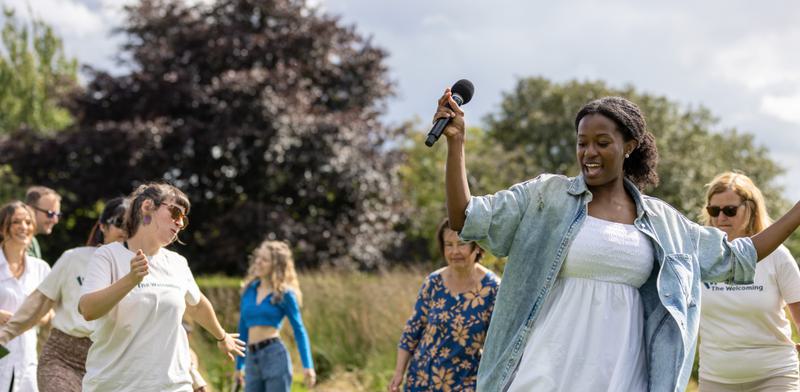
News Story
First things first – what is The Dream of Gerontius all about?
Nothing too deep and meaningful – just life, death and what happens after it’s all over. The oratorio is based on a poem by John Henry Newman, set to music by the British composer Edward Elgar in 1900. The story follows a regular guy – Gerontius comes from a Greek word meaning ‘old man’ – as he faces his death, meets his guardian Angel and comes face to face with God, before being sent to Purgatory with the promise of everlasting glory.
Who was John Henry Newman?
He was an important religious figure in 19th-century England. He trained as an Anglican priest before converting to Catholicism and eventually becoming a cardinal. The Dream of Gerontius was written after his conversion to Catholicism as an exploration of his beliefs about the journey from death through Purgatory to be by God’s side in Paradise. You can read the full poem here.
Elgar wasn’t the only musician to be inspired by Newman’s poem. Two popular hymns, ‘Firmly I Believe, and Truly’ and ‘Praise to the Holiest in the Height’ take their lyrics from its stanzas.
Today; The Dream of Gerontius is easily Newman’s most famous work, but he was also a prolific essay writer. The Irish author James Joyce was an admirer of Newman’s, once commenting that ‘nobody has ever written English prose that can be compared with that of a tiresome footling little Anglican parson’. In 2019 Newman was canonised as a saint in the Catholic church, making him the first English person born after the 17th century to be canonised.
What inspired the composition?
The piece was commissioned by the Birmingham Triennial Music Festival. Newman had a strong relationship with the city, having lived at the oratory for almost 40 years. He was then buried in Rednal, a suburb in south west Birmingham in 1890. Antonín Dvořák was originally approached to write a piece for the 1887 Festival, and was even given a copy of Newman’s poem when visiting Birmingham, but ultimately turned down the invitation. In 1898, Elgar was approached by Festival Committee member Charles Beale who persuaded him to accept a commission for the 1900 Festival. Elgar was then given the poem as a wedding present in 1889, planting the seed of inspiration for the eventual composition.
As a Catholic, Elgar resisted suggestions of altering the text to make it more palatable for Protestant audiences. He treated the poem with notable respect, only editing where necessary to make the length more appropriate for music. However, he was keen to not make the piece too sacred, explaining: 'I imagined Gerontius to be a man like us, not a Priest or a Saint, but a sinner... Therefore I’ve not filled his part with Church tunes & rubbish but a good, healthy full-blooded romantic, remembered worldliness, so to speak.'
What is the orchestration?
Given the subject matter, it’s no surprise that Elgar wanted to go big. He requested a full-size orchestra, three choirs, three soloists and threw in an organ for good measure. Despite the hundreds of musicians needed to perform the piece, however, it starts with only a few of them on stage, with the numbers swelling as Gerontius gets closer and closer to God.
How did the premiere go?
Not well. The score for the piece is as ambitious as its themes and the Birmingham Festival’s amateur choir struggled to master it. Two of the three soloists were also unwell that day, so their voices were rather less sublime than the piece demanded. Elgar did not take the disappointment well, writing dramatically in a letter to his friend August Jaeger, ‘I have allowed my heart to open once – it is now shut against every religious feeling & every soft, gentle impulse for ever’. Fortunately, Elgar’s heart recovered once music critics looked past the poor staging and saw the genius of the composition. Subsequent performances have more than redeemed the work, establishing it as a beloved piece of classical music.
Who’s performing it?
We couldn’t think of a better way to close the 2022 Festival than with a trip to paradise, so we invited the Royal Scottish National Orchestra to perform the piece for our closing concert. They joined forces with the Edinburgh Festival Chorus, the National Youth Choir of Scotland and star soloists Karen Cargill, Andrew Staples and Iain Paterson.
How can I watch it?
The concert was recorded as part of our At Home programme in partnership with abrdn via our YouTube channel. Find out more about our 2022 At Home programme.




